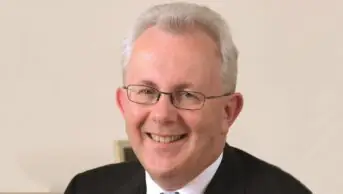Representatives of 44 pharmacy bodies met this week to discuss ways of establishing a royal college-type body for the profession at the invitation of the Royal Pharmaceutical Society (see Panel).
Ijeoma Uchegbu, chairman of the Academy of Pharmaceutical Sciences, who attended the meeting, told The Journal that the academy believes that there should be a single college to unite all groups that work in pharmacy and to be the repository of knowledge for pharmacy.
But the academy does not believe that it is necessary for individual organisations to subsume themselves into a college. “At this stage all the pharmacy organisations should work together to create a body that people will be happy to join,” Professor Uchegbu said.
She added that the Royal Pharmaceutical Society was best placed to lead on the formation of a college, but warned that not everyone agreed. “I was in a minority,” she said. “A lot of people were strongly suspicious of the Society leading the process.”
Geoff Saunders, chairman of the British Oncology Pharmacy Association, said that it was keen to be involved with a college, either as a faculty or as part of a faculty of specialisms, but that it would not want to lose its identity. “We’re pleased that the Society is looking to involve other groups,” he said.
“But we don’t want to see the Society rebadged as a royal college. A lot of opportunities could be lost if that were to happen.”
Celia Feetam, president of the College of Mental Health Pharmacists, said that no new organisation could be a college unless it had tiered levels of entry and reaccreditation processes.
As an organisation that already required accreditation for membership, the CMHP would have nothing to gain unless the royal college-type body did the same.
“We wouldn’t want to lose our own agenda or lower any of the standards that we have set,” she said.
She agreed that an umbrella body to reunite the profession was needed, but wanted specialist faculties to be able to speak through the new body, rather than have uninformed people speaking on their behalf, as at present.
The Guild of Healthcare Pharmacists believes that a possible model for the royal college could be similar to the American Society of Health-system Pharmacists (ASHP).
ASHP members can be members of several groups within the organisation, such as community pharmacy, mental health, diabetes, hospital pharmacy, surgery, critical care and so on.
Guild professional secretary Jean Curtis said: “There is a developing need for clinical support groups where both hospital and community pharmacist can learn together. This should help develop the community pharmacist’s clinical role further.”
She added that recognition and accreditation by the college of different levels of practice across the profession is needed to support a structured career pathway in which employers can recognise the level of practice achieved by members of staff.
“The college should be seen to be different from the current RPS: just tweaking the RPS will not attract members,” Mrs Curtis said.
Representing the UK Radiopharmacy group, Adrian Hall said that the group, which includes pharmacists and clinical scientists, would certainly want to be associated with any future pharmacy college. “As practitioners, we all feel that what we do amounts to the practice of pharmacy even if it is not being done by pharmacists.”
However, commenting on the feeling of the meeting, he said: “People would rather sell their children than have any non-pharmacists involved in the college.”


